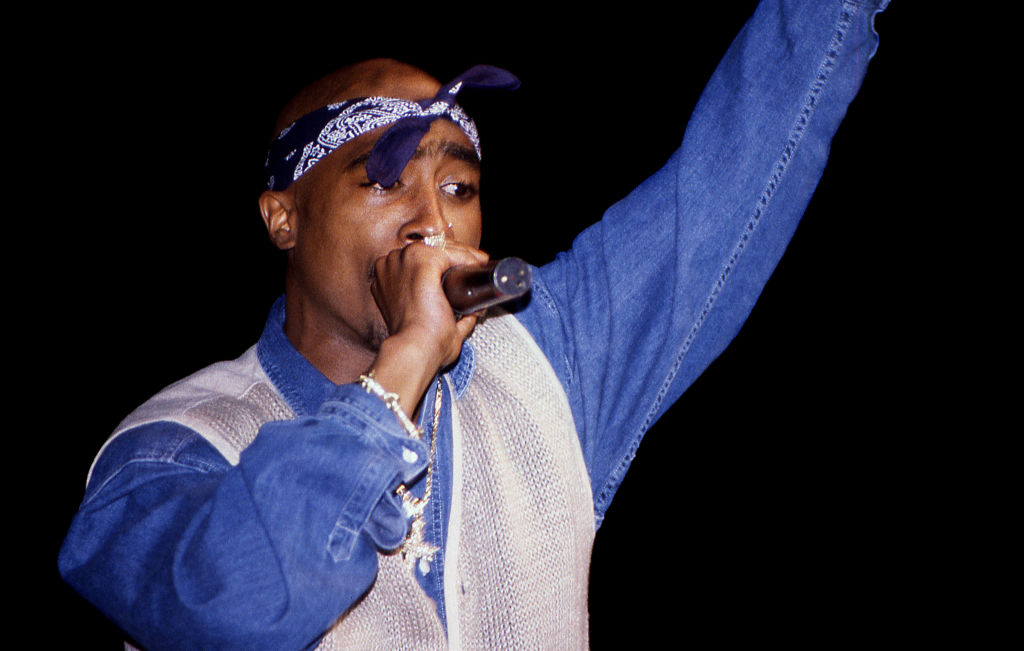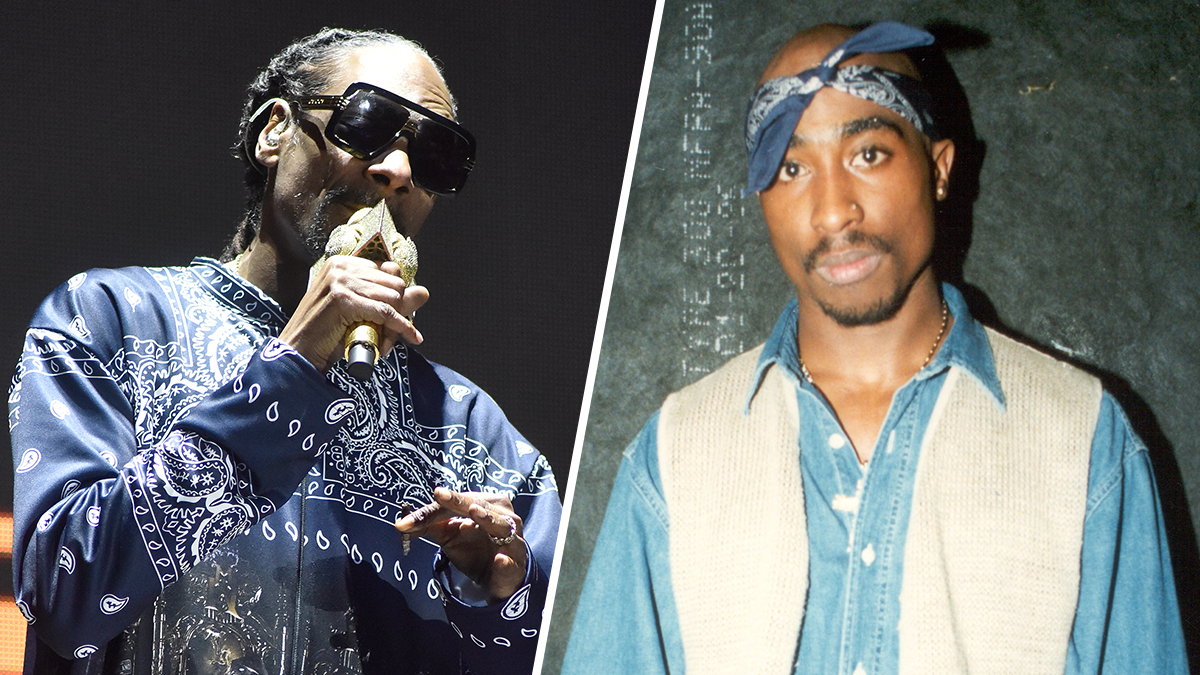A Hollywood Walk of Fame star was unveiled Wednesday for actor and influential rapper Tupac Shakur.
The posthumously presented star is at 6212 Hollywood Blvd. It was accepted by the multi-talented star's sister Sekyiwa "Set" Shakur in the Recording category.
"It fills my heart with honor to stand here today representing the Shakur family,'' she said. "Tupac knew deep down that he was always meant for something great. And as his little sister, I had the privilege to watch that greatness unfold.''
Get top local stories in Southern California delivered to you every morning. Sign up for NBC LA's News Headlines newsletter.
iHeart Media Radio personality Big Boy was the emcee of the event alongside filmmaker Allen Hughes, director of the docuseries "Dear Mama: The Saga of Afeni and Tupac Shakur." Jamal Joseph, who wrote the 2006 biography "Tupac Shakur Legacy" also was expected to deliver remarks.
The late artist sold over 75 million records worldwide and his music continues to gain millions of streams every year.
In 2017, Shakur was officially inducted into the Rock & Roll Hall of Fame. He became the "first solo hip-hop artist to be recognized for inclusion in his first eligible year."
Shakur also made a few appearances on the big screen in films like "Poetic Justice" and "Juice."
Photos: See Inside the ‘Tupac Shakur: Wake Me When I'm Free' Exhibit in Downtown LA
Born in Harlem, his family moved to Baltimore where he enrolled in the prestigious Baltimore School for the Arts. The family moved to Marin City, California located north of San Francisco. Raised by his mother, Afeni Shakur, a political activist and member of the Black Panther Party, she was intent on escaping Baltimore's violence, relocating to California when he was 17.
Shakur connected with the popular Bay Area rap crew Digital Underground, starting as a roadie and back-up dancer, and eventually working his way up to contributing a verse to ``Same Song'' from the soundtrack for the comedy horror film ``Nothing But Trouble.''
Shakur was signed by Interscope Records which released his first solo album, ``2Pacalypse Now,'' in 1991, which was certified gold by the recording industry trade group the Recording Industry Association of America for selling 923,455 units. Shakur's second studio album, ``Strictly 4 My N.I.G.G.A.Z'' was certified platinum for selling more than one million copies.
Shakur's third studio album, ``Me Against the World'' released in 1995 when he was serving a prison sentence for a sexual abuse conviction for forcibly touching a woman's buttock in his hotel room. It received a Grammy nomination for best rap album, and its lead single, ``Dear Mama,'' was nominated for best rap solo performance.
"Me Against the World'' was certified as double-platinum for selling more than 3.5 million copies.
Shakur's fourth studio album, "All Eyez on Me,'' released Feb. 13, 1996, seven months before his death, also received a best rap album Grammy nomination, while its singles "How Do U Want It'' and "California Love'' received nominations for best rap performance by a duo or group.
"All Eyez on Me'' was the best-selling album in Shakur's career, selling 5,887,630 units and was certified diamond.
Shakur received a posthumous best rap solo performance Grammy nomination in 2000 for "Changes,'' part of his "Greatest Hits'' album released in 1998.
Dhakur starred in the 1992 crime thriller, "Juice,'' the 1993 romance film, "Poetic Justice,'' the 1996 crime drama "Bullet''; the 1997 black comedy crime film "Gridlock'd'' and 1997 action crime thriller "Gang Related'' and co-starred in the 1994 sports drama, "Above the Rim.''
Tupac was gunned shot Sept. 7, 1996 in Las Vegas. He died six days later at age 25. His murder has never been solved.
Even though his career only lasted a few years before his death, he is recognized internationally. He has even had exhibits dedicated in his honor. Most recently in 2022, the "Tupac Shakur: Wake Me When I'm Free" exhibit opened for a limited time in LA. It was a fully-immersive museum experience that took a deep dive into the artist's life and legacy.
Walk of Fame stars are not awarded to recipients based solely on talent, hard work and dedication to the arts. The stars are given to performers who are nominated and a $75,000 fee is required to create the star, maintain it and provide everything involved with producing the ceremony, such as security, barricades and staging.



